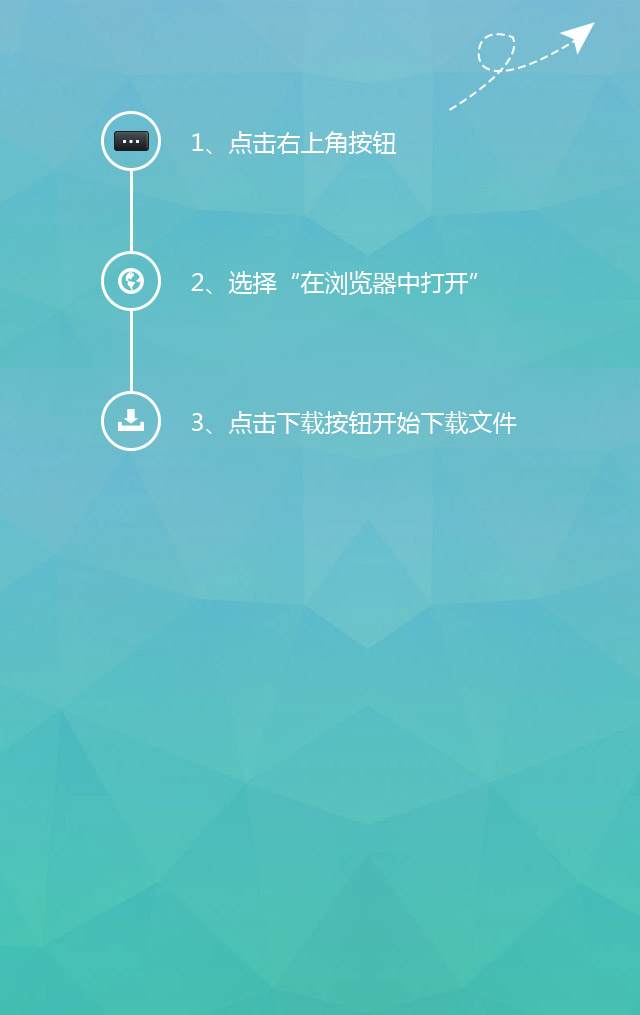第12课:顶尖高手《走遍美国》
第12课:顶尖高手《走遍美国》
ACT 1-1 “见到你我真高兴!”
【故事梗概】
Grandpa在家中起居室里等Susan 来吃晚饭。他们见面后,Grandpa和Susan讲到了打自己退休以后,每天都有很多时间不知道该如何打发。
Grandpa: Is that you, Susan?
Susan: It's me, Grandpa.
Grandpa: Am I glad to see you!
Susan: And am I glad to see you! I am also glad to be here.
Grandpa: How are things?
Susan: I have been talking to a group of sales men since ten this morning, and I'm real exhausted.
Grandpa: Well, you look good. What's Harry doing tonight?
Susan: He and Michelle are visiting relatives in New Jersey today.
Grandpa: The rest of our family went to the movies. So it's just you and me, Susan.
Susan: It's nice to be alone with you, Grandpa. We don't get to see enough of each other.
Grandpa: Oh, I feel the same way, Susan. I miss seeing you. But to tell the truth, next time I'd like to go into the city and meet you there, instead of you coming here.
Susan: You don't need to do that, Grandpa.
Grandpa: Yeah, I do. I need to get out more. Well, I mean there's a lot to do around the house, and I love being here with the family, you know, but I'm restless. Since I retired, I've got extra time on my hands.
Susan: I understand, Grandpa.
Grandpa: I think you do. Frankly, I'd like to use my brain a little more.
【语言点精讲】
1. It's me, Grandpa.
It's me. 是我。这是非正式用法。正式用法应该是 It's I。但是大多数美国人用非正式用法。另外这句话主语用的It。讲话时如果看不见对方,彼此称呼时常用that,it,this等词,如上一句话: Is that you, Susan?
2. Am I glad to see you!
见到你我真高兴!这种句子形式上是问句,实际上是感叹句,加强感情和语气。
3. I have been talking to a group of sales men since ten this morning, and I'm real exhausted.
我从今天上午十点钟一直在同一批推销员谈话,真是筋疲力尽了。
I have been talking to…我一直在和(他们)谈……。这是现在完成进行时的表达法,表示从过去某一时间一直持续到现在的动作或状态。
real: 确实。这是一个非正式用法,正式用法应该是really或very。
4. It's nice to be alone with you, Grandpa.
能跟你单独在一起很好,爷爷。
to be alone with you: 单独和你在一起。
6. We don't get to see enough of each other.
我们见面的时候不多啊。
get to: 有机会或时间做某事。表示通过一个过程逐渐做到某事,或花费一定的力气做到某事。
7. Oh, I feel the same way, Susan. I miss seeing you.
我也这样感觉,苏珊。我见不到你时很想念你的。
I feel the same way: 我也有同感。我有同样的感觉。
miss doing sth.: 在这里指“怀念作某事,怀念做过的事”。
8. But to tell the truth, next time I'd like to go into the city and meet you there, instead of you coming here.
可是跟你说真心话,下次我愿意到市内去,在那儿见你,而不是让你上这儿来。
to tell the truth: 说实话,老实说。类似含义的表达还有frankly, to be frank with you, as a matter of fact, frankly speaking等。
instead of…: 而不是…,不是…而是。
9. Since I retired, I've got extra time on my hands.
打从我退休以来,我手头有许多多余的时间无法打发掉。
time on my hands: 可以自由支配的时间,无法打发的时间。on one's hands常含有“必须自己承担或解决的负担”的意义。
ACT 1-2 “我们会找到一个解决办法的。”
【故事梗概】
Susan看Grandpa并不喜欢这种清闲的退休生活,主动提出要帮他找点事情做。Grandpa没有在意,让她帮助摆餐桌。没想到Susan却是当真的。
Susan: Grandpa, you have so much energy and so many years of experience. There are probably a lot of places for you to work. Particularly in the construction field.
Grandpa: But at my age, I'm not looking for a full-time job. I'm retired. But I'm bored.
Susan: Well, there must be something. Maybe I can help.
Grandpa: Let's go into the kitchen, and maybe you can help me set the table.
Susan: Sounds good to me. What are we having?
Grandpa: I prepared lamb chops, mashed potatoes, and a tossed green salad to begin with.
Susan: Grandpa, you are a terrific guy!
[A little later, Grandpa and Susan are eating dinner in the kitchen.]
Susan: You're still thinking about something to do, aren't you? A job of some kind.
Grandpa: That's right. I've been thinking about it for weeks now. There must be some way to put my mind to good use.
Susan: We'll find a solution. A positive solution to your finding a way to use that wonderful mind of yours.
【语言点精讲】
1. But at my age, I'm not looking for a full-time job. I'm retired. But I'm bored.
可是我这把年纪了,我不想找一个全职的工作。我是退休了,可是我腻烦得要命。
a full-time job: 全职工作,全天工作。
retired: 退职的,退休的。这种形容词由动词加-ed构成,类似的词还有 bored(厌烦的)、interested(感兴趣的)等。
2. Sounds good to me.
这(主意)听着不错。sound: 意思是“听来像,令人觉得”。
这个句子省略了主语it。省略主语在口语里比较常见,例如: “Want something to drink?”的完整形成为“Do you want something to drink?”。
3. I prepared lamb chops, mashed potatoes, and a tossed green salad to begin with.
我做了羊肉块,土豆泥,还有拌蔬菜色拉当头道菜。
lamb chops: 羊肉块。chop这里指(一块)排骨,肋条肉。
mashed potatoes: 土豆泥。
tossed green salad: 蔬菜色拉。
4. A job of some kind.
找个什么工作之类的。
some在这里表示“某一种、未知的”,后面带单数可数名词。
5. I've been thinking about it for weeks now.
我想了有几个星期了。
have been thinking about: 使用了动词的现在完成进行式,表示“想”这个行为在过去发生并持续到现在。
6. There must be some way to put my mind to good use.
总该有个办法让我施展我的才能。
put my mind to good use: 施展我的才能。
7. We'll find a solution. A positive solution to your finding a way to use that wonderful mind of yours.
我们会找到一个解决办法的。为让你能使用你那了不起的头脑寻找一个积极的解决办法。
find a solution: 找到一个解决办法。与后面的find a way同义。
to use that wonderful mind of yours: 使用你那了不起的头脑。最后面的of yours起强调作用,强调“你的”,这样说更有感情色彩。
ACT 2-1 “那么说我已经解决了你的问题了。”
【故事梗概】
Susan想请自己的老板John Marchetta帮忙,为Grandpa找点事做。她叫来了自己的助手Sam“商量”这个想法是否可行。
Susan: Sam, would you come in, please?
Sam: You sound like something's bothering you, Susan. The sketches for the cover of the new doll book?
Susan: That's not it. Please sit down.
Sam: Sure.
Susan: I need your advice on a personal matter, but it's not about me.
Sam: You need my advice on a personal matter, and it's not about you. OK.
Susan: It's about my grandfather.
Sam: What's the problem?
Susan: It won't sound like a big deal, but it is. I had dinner with him Saturday, and he's very unhappy about not working.
Sam: I thought he was retired and pleased to be living with the family.
Susan: He is, but there's so much energy and talent in the man, and he doesn't get to use it.
Sam: But what can I do? What kind of advice are you looking for?
Susan: Simply this. John Marchetta runs this company.
Sam: He founded this company.
Susan: Right. John Marchetta gave me my start here six years ago, when I first graduated from college. He gave me the chance to use my talents and made me feel more confident.
Sam: Right. Maybe he can do the same thing for your grandfather.
Susan: Or at least give him some advice.
Sam: Right. Then I’ve solved you problem.
Susan: I can always depend on you, Sam.
Sam: I'm glad to help. Shall I call Mr. Marchetta for you?
Susan: No, no. I'll do that. Thanks.
【语言点精讲】
1. You sound like something's bothering you.
听起来好像有什么事使你心烦。这是一种关心别人,询问别人怎么了、是不是有麻烦了的说法。bother: 使烦恼,打扰。
2. I need your advice on a personal matter, but it's not about me.
我有一件私事需要听你的意见,可并不是关于我自己的。Susan的话有些表面上的矛盾,这显然让Sam有点摸不着头脑,所以他说“You need my advice on a personal matter, and it's not about you.”这里Sam 重复了Susan的话。重复别人的话是确认对方意图的一种方式。
a personal matter: 个人的事情,私事。
3. It won't sound like a big deal, but it is.
听起来不像是一件重要的事情,可事实上是的。
sound like: 听起来好像…
a big deal: 指的是something very important(很重要的事情)。
4. I had dinner with him Saturday, and he's very unhappy about not working.
我星期六和他一起吃的晚饭,他因为没有工作很不高兴。
I had dinner with him Saturday: 正式的说法应该在Saturday前面加上一个on。但是在美国英语中,这个on常被省略。
be unhappy about: 因为……而不高兴。
5. Simply this.
简单说就是这样的。
6. He gave me the chance to use my talents and made me feel more confident.
他给了我使用我的才能的机会,使我更有信心。
give sb. the chance to do sth.: 给某人机会做某事。
made me feel more confident: 使我更有信心。 make sb. do sth.是make加不带to的不定式作宾补,其他类似的动词还有feel, let, see, watch, have等。
7. Then I’ve solved you problem.
那么说我已经解决了你的问题了。
solve the problem: 解决问题。这是个常用的搭配。
8. I can always depend on you.
我总是可以信赖你的。可以用这句话来感谢对方对自己的协助,这里的“对方”应该是和自己比较熟悉的人。
depend on: 依靠;信赖。也可写作 “depend upon”。
9. Shall I call Mr. Marchetta for you?
要不要我给Mr. Marchetta打电话?
表示主动为某人做某事时,如果主语是I或we时,一般用shall,例如: “Shall I/we wait for you?”。主语是you时则用would,例如: “Would you like me to help you?”。
ACT 2-2 “他怎么了?”
【故事梗概】
Susan在自己的老板John Marchetta的办公室里,鼓足勇气请老板给Grandpa一个工作的机会。另她有些出乎意料的是,John Marchetta先生立即就答应让Grandpa明天来面试。
Marchetta: Now, how's the Stewart family?
Susan: Fine, thank you, Mr. Marchetta. Except for my grandfather.
Marchetta: What's wrong, Susan? What's wrong with him?
Susan: He needs to work. In fact, that is the reason why I'm here to see you. I know you're building a new factory, and I thought…maybe …my grandfather is so experienced in the construction trade, he could be so valuable.
Marchetta: Tel him to come and see me at ten o'clock tomorrow morning. I have an idea that may solve the problem for him and help a lot of other people.
Susan: Really, Mr. Marchetta? Can I tell him that?
Marchetta: Sure can. Ten o'clock in the morning. Here.
Susan: Oh, thank you!
【语言点精讲】
1. How's the Stewart family?
Stewart全家人还好吗?这里动词用单数is,因为family是集体名词,表示全家人作为一个整体。
2. Except for my grandfather.
这句话是“Everyone is fine except for my grandfather.”的省略。
except for: 除……之外。指若不计被除掉的这一点,其它方面都符合主句的断言。
3. What's wrong, Susan? What's wrong with him?
怎么了,Susan?他怎么了?
向对方表示关怀,询问对方遇到什么麻烦了、有什么困难,可以有多种表达方式。如:
What's wrong?
What's the problem?
There is something on your mind.
Something's bothering you.
What's the matter?
Is anything/something wrong?
4. In fact, that is the reason why I'm here to see you.
事实上,我就是为这事来见你的。
the reason why … : …的原因,…的理由。也可以说the reason that或者the reason for.
5. My grandfather is so experienced in the construction trade, he could be so valuable.
so experienced in the construction trade: 在建筑行业很有经验。trade除“贸易,交换”以外,还有“行业,手艺”的意思,因此有 the construction trade的说法。
valuable:有价值的,有用的。注意以下几个词的意思: invaluable(无价的;非常贵重的),valueless(无价值的;不值钱的),unvalued(不受重视的), valued(重要的;宝贵的)。
6. Sure can.
当然可以。是一种非正式用法。
ACT 3 -1 “这是很了不起的经历!”
【故事梗概】
Grandpa 在 John Marchetta先生的办公室里接受面试。Marchetta 先生浏览了Grandpa的简历,给了他很高的评价。
Grandpa: Hi. I'm Malcolm Stewart.
Marchetta: John Marchetta. Sit down, sit down.
Grandpa: Susan has told me a great deal about you. She says you're quite a man.
Marchetta: She says a lot of wonderful things about you too, Mr. Stewart.
Grandpa: That's always nice to hear, Mr. Marchetta.
Marchetta: Call me John. May I call you Malcolm? Let's talk business.
Grandpa: That's music to my ears.
Marchetta: I understand you used to be in the construction business.
Grandpa: Yup. Forty-three years. Here's a brief description of forty-three years of on-the-job training.
Marchetta: That is some history! You're a valuable asset, Malcolm. Very valuable.
Grandpa: Thank you. Yup. Forty-three years. Half that time in my own construction company. Big jobs -- factories, shopping malls. That kind of thing.
Marchetta: Then you retired.
Grandpa: Yes. After my wife died, and I felt I should spend more time with my children and grandchildren. I lived in Florida, and they lived in New York.
Marchetta: I understand. My daughter, Cami lives in New York. I like being near her.
【语言点精讲】
1. Susan has told me a great deal about you. She says you're quite a man.
Susan跟我说了不少有关你的事,她说你是个很了不起的人。
a great deal: 很多。也可以说 a great deal of sth. , 但后面的名词只能是不可数的。
You're quite a man. 你真是个了不起的人。
2. Call me John.
叫我John好了。在对方称自己为某先生或用其它尊称时,欲使对方直呼己名以示亲近,常这样说。也可以: “John to you.”
3. Let's talk business.
talk business: 谈工作, 谈生意。这是个惯用语,talk 在这里用作及物动词。
类似的不带介词,以talk为及物动词的用法还有: talk politics/sport(谈论政治/体育),talk shop(说行话,谈本行业或本职工作的事),talk sense/nonsense,talk nonsense/rubbish(说胡话,胡说八道)等。
4. That's music to my ears.
正合我意。正是我想听的。
5. I understand you used to be in the construction business.
我听说你过去是在建筑业工作的。
I understand: 在这里的意思是“我听说,我知道这样的信息”。
used to do: 过去曾做过某事。用来谈论过去的经历。
6. Here's a brief description of forty-three years of on-the-job training.
这儿有一份材科,简短地记录了我四十三年的工作经历。
a brief description: 简单的叙述。这里指简历。
on-the-job training: 指工作经历。美国人很重视实际工作经验,所以他们把工作经历称为“工作时的培训”。
7. That is some history! You're a valuable asset, Malcolm. Very valuable.
这是很了不起的经历!你是个很宝贵的人才,Malcolm,非常宝贵。
some: 了不起的,相当于“a wonderful…”。这是一种非正式用法。
asset: 资产, 财富, 人才。
8. I like being near her.
我喜欢离她近一点。
这里like后面接-ing形式,表示“经常或总是或习惯性地”喜欢某事。
ACT 3 -2 “TOPS: 优秀老人协会”
【故事梗概】
Marchetta先生和Grandpa讲了关于优秀老人协会TOPS的事情,Grandpa很感兴趣,随即表示要入会。Marchetta先生还要带Grandpa去建筑工地。Grandpa的新工作马上就要开始了。
Grandpa: When I came here, I planned to take a few months off. Relax with the family and then look for some work. Put my experience on the line…but, unfortunately, there isn't any work for a retired person my age.
Marchetta: Sometimes there is, and sometimes there isn't. Well, I'm involved with an organization, and we're trying to resolve that problem.
Grandpa: What's that?
Marchetta: TOPS. T-O-P-S-means Talented Older People's Society.
Grandpa: I'd like to be a member. How much are the dues?
Marchetta: There are no dues. The organization serves major companies in this city. Why? Because our members are men and women like you. Experienced, talented, retired. But our members want to go out there and use their talents. They want to work.
Grandpa: That is fantastic, John!
Marchetta: I've got an idea for you, Malcolm. Just fill out this form for me. It'll only take a few minutes. Sit right here, and do it while I talk to my secretary. When I get back, we'll talk about my new factory. My company is a member of TOPS. So I try hard to find opportunities for people like you, Malcolm. And when I see an opportunity, I can act on it. Well, I can use your brainpower on the job right now. Have you got time this morning to go over to the construction site with me? I'd like to have you meet my foreman -- get some background on the job.
Grandpa: I've got plenty of time.
Marchetta: I'll be right back. We'll go over to the job site together.
【语言点精讲】
1. When I came here, I planned to take a few months off.
我来这里以后,计划先休息几个月。
plan to do sth.: 计划做某事,打算做某事。
to take a few months off: 休息几个月。
2. Put my experience on the line.
这句话的意思相当于“to test my experience by trying something. ”(把我的经验考验一下。考验我的阅历。 )
3. Well, I'm involved with an organization, and we're trying to resolve that problem.
说起来,我参加了一个组织,我们这个组织正在力求解决这个问题。
be involved with: 意思是“与……有关系”, “与……有牵连”。
resolve: 解决(问题)。
4. TOPS. T-O-P-S-means Talented Older People's Society.
TOPS: Talented Older People's Society的缩写, 即优秀老人协会。另外Tops这个词本身也有“最优秀”的意思, 即“the best”, 所以 TOPS是个含义丰富的机构名称。
5. How much are the dues?
会费是多少?dues: 费用, 会费。
6. Just fill out this form for me.
请把这张表格填好。
fill out: 意思是“填写(表格)”, 这是美国用法。英国英语用 fill in。
7. Sit right here, and do it while I talk to my secretary.
请就坐在这儿,趁我和我的秘书谈话的时间你(填一下这张表)。
talk to sb.: 和某人谈话,对某人说…。talk to是从主动的立场对某人谈,有时是去吐露心里发愁的事,有时是去责备、吩咐或抗议、要求等。
8. I've got plenty of time.
我时间多得是。
plenty of后面既可带不可数名词,也可以带可数名词。它主要表示量大,还含有“足够”或“有余”的意思,等于lots of。
9. I'll be right back.
我马上回来。
ACT 3 -3 “欢迎加入。”
【故事梗概】
在建筑工地,Grandpa 见到了Marchetta 先生的工头Danny。针对Danny遇到的问题,Grandpa给了他一个很好的建议,这赢得了Danny对他的信任和尊重。
Danny: Malcolm, you worked on the Spaceport project?
Grandpa: My company was the contractor. I built the theater there with my own two hands, practically.
Danny: I understand.
Marchetta: Well, I'm glad to see you two guys getting along so well because, Danny, Malcolm is on the TOPS team. He's going to be working with you for a while. His experience will be valuable to both of us.
Danny: Welcome aboard, Malcolm!
Marchetta: I'm going back to my office. Give me a call later, Malcolm. I'll tell you the time and date of the next TOPS meeting. I'd like you to meet the group.
Grandpa: I will, John. And again, thanks.
Marchetta: No … thank you. And thank Susan.
Grandpa: He's quite a man.
Danny: A real inspiration for me.
Grandpa: OK, Danny. I know you didn't expect to have me around, but I think I can be of some help to you.
Danny: Let me tell you something, Malcolm. With your background and experience, I can learn something…and I do need some advice on a difficult problem. Let me show you this.
Grandpa: I don’t want to give you a final opinion without studying these building plans more carefully. But a simple solution might be to move the air-conditioning units instead of redesigning the entire system. It might be simpler and less expensive.
Danny: You just earned your weight in gold, Malcolm. Welcome aboard!
【语言点精讲】
1. Malcolm, you worked on the Spaceport project?
worked on the Spaceport project: 参与了 Spaceport建设工程。work on是“从事……”, “参与……的工作”的意思。
2. My company was the contractor. I built the theater there with my own two hands, practically.
我的公司是承包商。我差不多是独力地修建了那里的剧院。
contractor: (工程)承包商, 立约人。
with my own two hands: 独立地。相当于“without help, by myself. ”
practically: 差不多, 几乎。
3. Well, I'm glad to see you two guys getting along so well because, Danny, Malcolm is on the TOPS team.
getting along so well: 相处得好。
get along(with)是表示过日子,与人相处或应付事物是否成功的用语
4. Welcome aboard, Malcolm!
Welcome abroad. : 欢迎加入。在欢迎新成员时通常用这个表达法。aboard 原意为“在船(车、飞机)上”。如,火车将要离站时,车长照例要喊一声All aboard!(各位请上车)。Welcome aboard 由此有了“欢迎参加到我们这一事业中来”的意思。
5. I will.
我会的。这是对上一句话“I'd like you to meet the group. ”的回答。当问句中用 would, might, could等词时, 回答时要用will, may, can 等词表示确定之意。
6. A real inspiration for me.
他能鼓舞我努力干。inspiration: 给人启发或灵感的人或物。
7. I know you didn't expect to have me around, but I think I can be of some help to you.
我知道你本来没料到我会来到这里和你共事,可是我想我能对你有所帮助。
to have me around: 有我在你身边(共事)。
be of some help: 有所帮助。这里的介词of表示“具有”。
8. You just earned your weight in gold, Malcolm.
你已经帮了大忙了,Malcolm。
earned your weight in gold: 你帮了大忙。相当于“helped very much”。 当某人完成一件很重要的工作时, 可用这个惯用语表示致谢。
ACT 3 -4 “一言为定!”
【故事梗概】
在Susan的办公室里,Grandpa和Susan讲了Marchetta先生带他去工地和Danny见面的事情。两人都为Grandpa找到了事情做而高兴。
Grandpa: It all happened so quickly! I can't believe it!
Susan: I'm glad Mr. Marchetta was so helpful.
Grandpa: He was more than helpful. He actually took me to meet his foreman.
Susan: I'm thrilled for you, Grandpa.
Grandpa: I don’t know how to thank you, Susan. You're a wonderful granddaughter.
Susan: It's good to see you so happy.
Grandpa: I'll be at the construction site tomorrow. What are you doing tomorrow night?
Susan: I'm not doing anything. Why?
Grandpa: How about a date with your grandfather? I owe you a good steak dinner.
Susan: I'll accept. Tomorrow night. You and me. Dinner. What time?
Grandpa: I'll pick you up here at seven. Is that OK?
Susan: I can't wait! And you can tell me all about your first full day back on the job.
Grandpa: It's a deal!
【语言点精讲】
1. He was more than helpful.
他不仅仅是帮忙而已。
more than: 这里的意思是“不仅仅”。
2. I'm thrilled for you, Grandpa.
我真为你高兴极了,爷爷。
thrilled: 非常兴奋的,极为激动的。
3. What are you doing tomorrow night?
你明天晚上有什么安排?这里用现在进行时态表示将来要发生的事情。
4. I owe you a good steak dinner.
我欠你的情,应该请你吃一顿精美的牛排晚餐以示感谢。
owe: 这里指“欠…的人情”,后面常接双宾语。
5. I'll pick you up here at seven.
我七点钟到这儿来接你。
pick sb. up: 开车去接某人
6. And you can tell me all about your first full day back on the job.
你还可以把你头一天再次开始工作的情况都告诉我。
back on the job: 又开始工作。
7. It's a deal!
一言为定!
推荐
-

-

QQ空间
-

新浪微博
-

人人网
-

豆瓣

